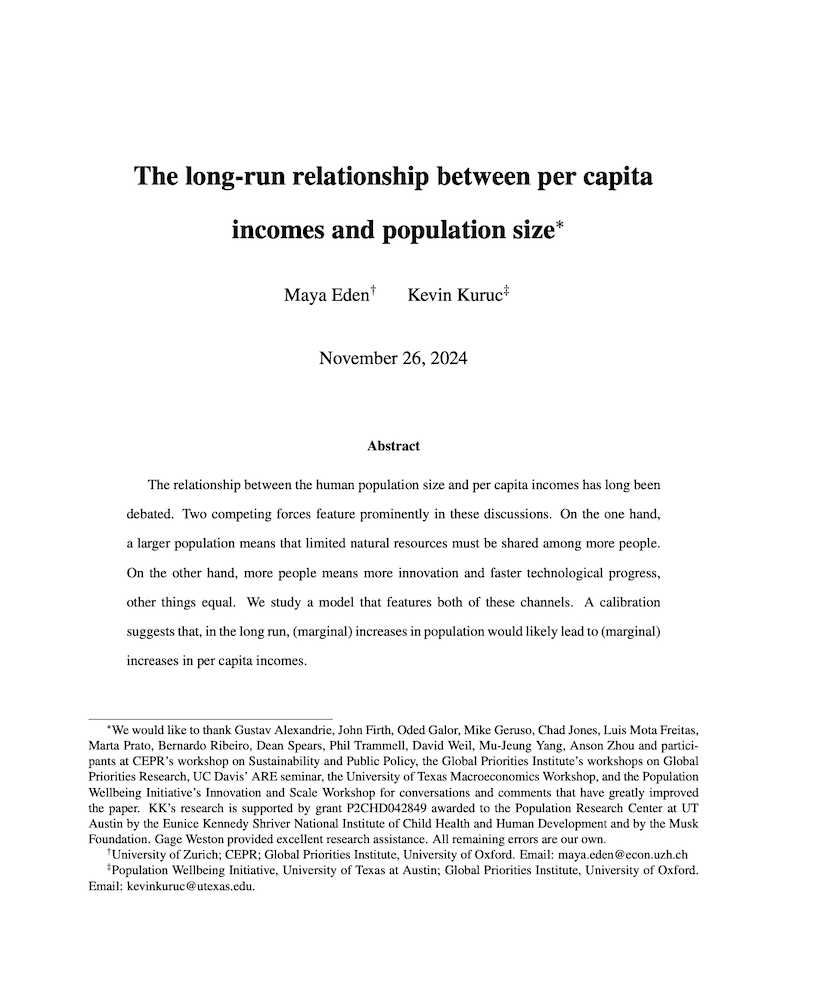The long-run relationship between per capita incomes and population size
Maya Eden (University of Zurich) and Kevin Kuruc (Population Wellbeing Initiative, University of Texas at Austin)
GPI Working Paper No. 29-2024
The relationship between the human population size and per capita incomes has long been debated. Two competing forces feature prominently in these discussions. On the one hand, a larger population means that limited natural resources must be shared among more people. On the other hand, more people means more innovation and faster technological progress, other things equal. We study a model that features both of these channels. A calibration suggests that, in the long run, (marginal) increases in population would likely lead to (marginal) increases in per capita incomes.
Other working papers
Against Willing Servitude: Autonomy in the Ethics of Advanced Artificial Intelligence – Adam Bales (Global Priorities Institute, University of Oxford)
Some people believe that advanced artificial intelligence systems (AIs) might, in the future, come to have moral status. Further, humans might be tempted to design such AIs that they serve us, carrying out tasks that make our lives better. This raises the question of whether designing AIs with moral status to be willing servants would problematically violate their autonomy. In this paper, I argue that it would in fact do so.
A paradox for tiny probabilities and enormous values – Nick Beckstead (Open Philanthropy Project) and Teruji Thomas (Global Priorities Institute, Oxford University)
We show that every theory of the value of uncertain prospects must have one of three unpalatable properties. Reckless theories recommend risking arbitrarily great gains at arbitrarily long odds for the sake of enormous potential; timid theories recommend passing up arbitrarily great gains to prevent a tiny increase in risk; nontransitive theories deny the principle that, if A is better than B and B is better than C, then A must be better than C.
Desire-Fulfilment and Consciousness – Andreas Mogensen (Global Priorities Institute, University of Oxford)
I show that there are good reasons to think that some individuals without any capacity for consciousness should be counted as welfare subjects, assuming that desire-fulfilment is a welfare good and that any individuals who can accrue welfare goods are welfare subjects. While other philosophers have argued for similar conclusions, I show that they have done so by relying on a simplistic understanding of the desire-fulfilment theory. My argument is intended to be sensitive to the complexities and nuances of contemporary…

